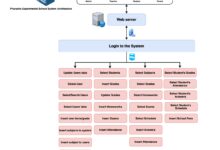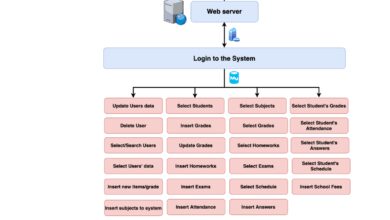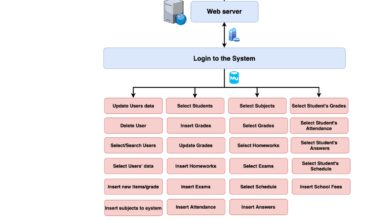System Engineer Jobs: 7 Powerful Paths to Skyrocket Your Career
Thinking about system engineer jobs? You’re not alone. With tech evolving faster than ever, these roles are in high demand—and packed with opportunity. Let’s break down what it really takes to thrive in this dynamic field.
What Are System Engineer Jobs?

System engineer jobs involve designing, implementing, and maintaining complex systems that keep organizations running smoothly. These professionals bridge the gap between hardware, software, networks, and user needs, ensuring everything works in harmony. Unlike traditional IT roles focused on troubleshooting, system engineers take a holistic approach—planning, optimizing, and scaling entire infrastructures.
The Core Responsibilities of a System Engineer
System engineers are the architects behind reliable, scalable, and secure technology ecosystems. Their day-to-day tasks vary depending on the industry and organization, but core responsibilities remain consistent across roles.
- Designing and deploying IT infrastructure (servers, networks, cloud platforms)
- Automating system configurations using tools like Ansible, Puppet, or Chef
- Monitoring system performance and resolving bottlenecks
- Ensuring security compliance and disaster recovery readiness
- Collaborating with development, operations, and security teams (DevOps/SRE environments)
“A system engineer doesn’t just fix problems—they anticipate them before they happen.” — TechOps Lead, Google Cloud
How System Engineer Jobs Differ from Other IT Roles
While system engineers share some duties with network administrators, software developers, and IT support specialists, their role is uniquely cross-functional. For example:
- vs. Network Engineers: Network engineers focus on connectivity and data flow; system engineers manage the entire stack, including OS, applications, and integration.
- vs. DevOps Engineers: While overlapping in automation and CI/CD pipelines, system engineers often have broader infrastructure oversight, especially in non-agile environments.
- vs. IT Support: Support roles react to issues; system engineers proactively design resilient systems to prevent downtime.
This distinction makes system engineer jobs more strategic and forward-thinking.
Top 7 Industries Hiring System Engineers in 2024
The demand for system engineer jobs spans nearly every sector, but certain industries are leading the charge due to digital transformation, regulatory requirements, and innovation pressure.
1. Information Technology & Cloud Services
Big players like Amazon Web Services (AWS), Microsoft Azure, and Google Cloud Platform are aggressively hiring system engineers to manage cloud infrastructure, optimize resource allocation, and ensure uptime for millions of users.
- Roles include Cloud System Engineer, Infrastructure Architect, and Platform Reliability Engineer
- Skills in Kubernetes, Terraform, and cloud security are highly valued
- Remote work opportunities are abundant in this space
According to U.S. Bureau of Labor Statistics, employment in computer and IT occupations is projected to grow 15% from 2021 to 2031—much faster than average.
2. Financial Services & FinTech
Banks, insurance firms, and fintech startups rely on system engineers to maintain secure, compliant, and high-performance transaction systems. With cyber threats rising, resilience and encryption are top priorities.
- System engineers implement zero-trust architectures and real-time fraud detection systems
- Regulatory compliance (e.g., GDPR, SOX, PCI-DSS) requires robust system logging and auditing
- Firms like JPMorgan Chase and PayPal invest heavily in internal system engineering teams
3. Healthcare & Medical Technology
Hospitals and health tech companies need system engineers to manage electronic health records (EHR), telemedicine platforms, and medical device integrations—all while adhering to HIPAA regulations.
- System uptime directly impacts patient care and safety
- Integration with IoT devices (e.g., wearables, monitoring systems) is growing rapidly
- Engineers must balance accessibility with strict data privacy controls
4. Telecommunications
With 5G rollout and edge computing expansion, telecom giants like AT&T, Verizon, and Ericsson are hiring system engineers to design next-gen networks and support massive data throughput.
- Focus on low-latency, high-availability systems
- Integration of AI-driven network optimization tools
- Field and remote roles available, often with hybrid infrastructure models
5. Government & Defense
Federal agencies and defense contractors require system engineers for secure communications, satellite systems, and national cybersecurity initiatives.
- Many roles require security clearances (e.g., Secret, Top Secret)
- Projects often involve large-scale, mission-critical systems
- Agencies like NASA, NSA, and DHS employ thousands of system engineers
Learn more about federal tech careers at USAJobs.gov.
6. Manufacturing & Industrial Automation
Smart factories and Industry 4.0 initiatives depend on system engineers to integrate SCADA systems, robotics, and predictive maintenance platforms.
- Engineers work with PLCs, industrial IoT sensors, and MES (Manufacturing Execution Systems)
- Focus on minimizing downtime and maximizing production efficiency
- Companies like Siemens, GE, and Bosch have dedicated system engineering divisions
7. E-commerce & Retail Tech
Online retailers like Amazon, Shopify, and Walmart rely on system engineers to handle peak traffic (e.g., Black Friday), manage inventory systems, and ensure seamless checkout experiences.
- High availability and scalability are non-negotiable
- Microservices architecture and containerization are standard
- Engineers often work in agile, fast-paced environments
Essential Skills for System Engineer Jobs
To succeed in system engineer jobs, technical expertise must be paired with problem-solving ability and communication skills. Employers look for a blend of hard and soft skills.
Technical Skills You Can’t Ignore
These are the foundational competencies that hiring managers expect to see on your resume.
- Operating Systems: Deep knowledge of Linux (Ubuntu, CentOS, Red Hat) and Windows Server
- Networking: Understanding of TCP/IP, DNS, firewalls, VLANs, and load balancing
- Scripting & Automation: Proficiency in Bash, Python, PowerShell for automating repetitive tasks
- Cloud Platforms: Experience with AWS, Azure, or GCP—including IAM, EC2, S3, VPCs
- Configuration Management: Tools like Ansible, Puppet, or Chef for consistent system deployment
- Monitoring Tools: Nagios, Zabbix, Prometheus, or Datadog for real-time system health tracking
- Virtualization: VMware, Hyper-V, or KVM for resource optimization
For hands-on learning, platforms like Google IT Support Professional Certificate on Coursera offer practical training.
Soft Skills That Set You Apart
Technical prowess alone won’t land you the job. Employers value candidates who can collaborate, explain complex ideas, and adapt under pressure.
- Problem-Solving: Ability to diagnose issues methodically and implement effective solutions
- Communication: Clearly explaining technical concepts to non-technical stakeholders
- Time Management: Juggling multiple projects and priorities in high-pressure environments
- Team Collaboration: Working effectively in cross-functional teams (Dev, Ops, Security)
- Curiosity & Learning Agility: Staying updated with emerging technologies and best practices
“The best system engineers aren’t just coders—they’re translators between technology and business goals.” — CTO, IBM
Certifications That Boost Your Resume
Earning industry-recognized certifications can significantly improve your chances in competitive system engineer jobs.
- CompTIA A+ and Network+: Entry-level credentials that validate foundational IT knowledge
- CompTIA Server+ and Linux+: Focused on server administration and Linux systems
- Microsoft Certified: Azure Administrator Associate: Proves cloud management skills on Microsoft’s platform
- AWS Certified SysOps Administrator: Highly valued for cloud-based system engineering roles
- Red Hat Certified Engineer (RHCE): Gold standard for Linux system administration
- Certified Information Systems Security Professional (CISSP): For roles emphasizing security and compliance
Many employers reimburse certification fees, making them a smart investment.
How to Land a System Engineer Job: A Step-by-Step Guide
Breaking into system engineer jobs requires strategy, preparation, and persistence. Follow this roadmap to increase your odds of success.
Step 1: Build a Strong Educational Foundation
Most system engineer jobs require at least a bachelor’s degree in computer science, information technology, or a related field. However, some employers accept equivalent experience or bootcamp training.
- Consider degrees in Computer Engineering, Electrical Engineering, or Cybersecurity for specialized paths
- Online programs from institutions like Georgia Tech or University of Illinois offer flexible options
- Self-taught candidates can build credibility through open-source contributions and personal projects
Step 2: Gain Hands-On Experience
Employers prioritize practical skills over theory. Build experience through internships, labs, or homelab setups.
- Set up a home server using old hardware or virtual machines (VMs)
- Practice deploying web servers, databases, and firewalls
- Use platforms like Hack The Box or TryHackMe to simulate real-world scenarios
- Contribute to open-source projects on GitHub to showcase your code and collaboration skills
Step 3: Optimize Your Resume and LinkedIn Profile
Your resume should highlight technical skills, certifications, and measurable achievements.
- Use action verbs: “Automated server provisioning, reducing deployment time by 60%”
- List tools and technologies prominently (e.g., “Proficient in Docker, Kubernetes, Ansible”)
- Include a summary section that aligns with the job description
- Customize your LinkedIn headline: “System Engineer | Cloud & Automation Specialist | AWS Certified”
- Join groups like “System Administrators & Engineers Network” to expand visibility
Step 4: Ace the Technical Interview
System engineer interviews often include coding challenges, system design questions, and scenario-based troubleshooting.
- Practice common questions: “How would you troubleshoot a server that won’t boot?”
- Explain your thought process aloud during problem-solving exercises
- Be ready to diagram a network or system architecture on a whiteboard
- Review scripting tasks (e.g., write a Python script to monitor disk usage)
- Study real-world case studies (e.g., how Netflix handles outages)
Resources like Interview Cake and LeetCode offer excellent practice.
Step 5: Negotiate Your Offer
Once you receive an offer, don’t accept the first number. Research market rates and negotiate confidently.
- Use salary tools like Glassdoor, Payscale, or Levels.fyi to benchmark offers
- Consider total compensation: base salary, bonuses, stock options, benefits
- Ask about remote work flexibility, professional development budgets, and promotion paths
- Highlight your unique value: certifications, automation experience, or security expertise
Remote vs. On-Site System Engineer Jobs: What’s Better?
The rise of remote work has transformed system engineer jobs, offering new flexibility but also new challenges.
Advantages of Remote System Engineer Jobs
Remote roles have become increasingly common, especially in cloud-focused companies.
- Greater work-life balance and reduced commute stress
- Access to global job markets beyond local geography
- Ability to work asynchronous hours in some organizations
- Lower overhead costs for employers, often leading to higher salaries
Companies like GitLab, Automattic, and DigitalOcean operate fully remotely.
Challenges of Remote Work
While appealing, remote system engineer jobs aren’t without drawbacks.
- Delayed response times during critical outages due to time zone differences
- Less face-to-face collaboration, which can impact team cohesion
- Need for strong self-discipline and time management
- Home internet reliability becomes mission-critical
Hybrid Models: The Best of Both Worlds?
Many organizations now offer hybrid arrangements, combining office presence with remote flexibility.
- Team meetings and planning sessions held in-person
- Day-to-day operations managed remotely
- Improved work culture while maintaining productivity
A 2023 Gartner survey found that 65% of tech companies use hybrid models for system engineering roles.
Future Trends Shaping System Engineer Jobs
The role of a system engineer is evolving rapidly due to technological advancements and changing business needs.
1. Rise of AI and Machine Learning in System Management
AI-driven tools are automating routine monitoring and predictive maintenance.
- Tools like AIOps (Artificial Intelligence for IT Operations) detect anomalies before they cause outages
- Machine learning models predict disk failures, memory leaks, or network congestion
- Engineers must now understand data pipelines and model integration
2. Shift to Cloud-Native and Serverless Architectures
More companies are moving away from on-premise servers to cloud-native solutions.
- Serverless computing (e.g., AWS Lambda) reduces infrastructure management burden
- Containers and Kubernetes dominate deployment strategies
- System engineers must master cloud cost optimization and auto-scaling policies
3. Increased Focus on Cybersecurity and Zero Trust
With rising cyber threats, system engineers are expected to integrate security into every layer.
- Zero Trust models require continuous authentication and least-privilege access
- Engineers implement end-to-end encryption, multi-factor authentication, and SIEM tools
- Security is no longer just an IT add-on—it’s a core system design principle
4. Growth of Edge Computing and IoT Integration
As devices generate more data at the edge, system engineers must design decentralized architectures.
- Processing data closer to the source reduces latency (critical for autonomous vehicles, smart cities)
- Engineers manage distributed nodes and ensure secure communication
- Skills in MQTT, edge OS, and lightweight virtualization are in demand
5. Sustainability and Green IT Initiatives
Organizations are prioritizing energy-efficient systems to reduce carbon footprints.
- System engineers optimize server utilization to minimize power consumption
- Virtualization and consolidation reduce physical hardware needs
- Renewable energy-powered data centers are becoming standard
Salary Expectations for System Engineer Jobs
System engineer jobs are among the highest-paying in the tech industry, with salaries varying by location, experience, and specialization.
Entry-Level vs. Senior Roles
Compensation grows significantly with experience and expertise.
- Entry-Level (0–3 years): $65,000 – $85,000 per year
- Mid-Level (4–7 years): $90,000 – $120,000 per year
- Senior-Level (8+ years): $130,000 – $170,000+ per year
- Principal/Lead Engineers: Can exceed $200,000 with stock options and bonuses
Salaries in tech hubs like San Francisco, Seattle, and New York are typically 20–30% higher.
Industry-Based Pay Differences
Certain sectors offer higher compensation due to complexity and risk.
- Finance & FinTech: Average $140,000 due to high-stakes systems
- Cloud Providers: AWS, Google, Microsoft pay top dollar for infrastructure experts
- Government: Slightly lower base pay but strong benefits and job security
- Startups: May offer lower salaries but equity stakes and rapid growth potential
Global Salary Comparison
System engineer jobs are well-paid worldwide, though purchasing power varies.
- United States: $95,000 average (BLS, 2023)
- Germany: €70,000 – €90,000
- Canada: CAD 85,000 – 110,000
- Australia: AUD 110,000 – 140,000
- India: INR 800,000 – 1,800,000 (growing rapidly in Bangalore, Hyderabad)
FAQ
What qualifications do I need for system engineer jobs?
A bachelor’s degree in computer science or IT is common, but certifications (like CompTIA, AWS, RHCE) and hands-on experience can substitute. Employers value practical skills in Linux, networking, and automation.
Are system engineer jobs in demand?
Yes. The U.S. Bureau of Labor Statistics projects strong growth in IT roles, and with digital transformation accelerating, demand for system engineers is rising across finance, healthcare, cloud, and government sectors.
Is system engineering a stressful job?
It can be, especially during outages or system migrations. However, proactive planning and automation reduce stress. Many find the problem-solving aspect rewarding rather than overwhelming.
Can I work remotely as a system engineer?
Absolutely. Many system engineer jobs, especially in cloud and DevOps environments, are fully remote or hybrid. Strong internet and self-management skills are essential.
How is system engineering different from DevOps?
System engineering is broader, covering infrastructure design and maintenance. DevOps focuses on collaboration between development and operations, emphasizing CI/CD pipelines and agile practices. There’s significant overlap, but DevOps is more development-adjacent.
System engineer jobs are more than just technical roles—they’re strategic positions that keep modern organizations running. Whether you’re just starting out or looking to advance, the path is full of opportunity. With the right skills, certifications, and mindset, you can build a rewarding career in this ever-evolving field. Stay curious, keep learning, and don’t underestimate the power of hands-on experience. The future of technology needs system engineers—maybe even you.
system engineer jobs – System engineer jobs menjadi aspek penting yang dibahas di sini.
Further Reading:









